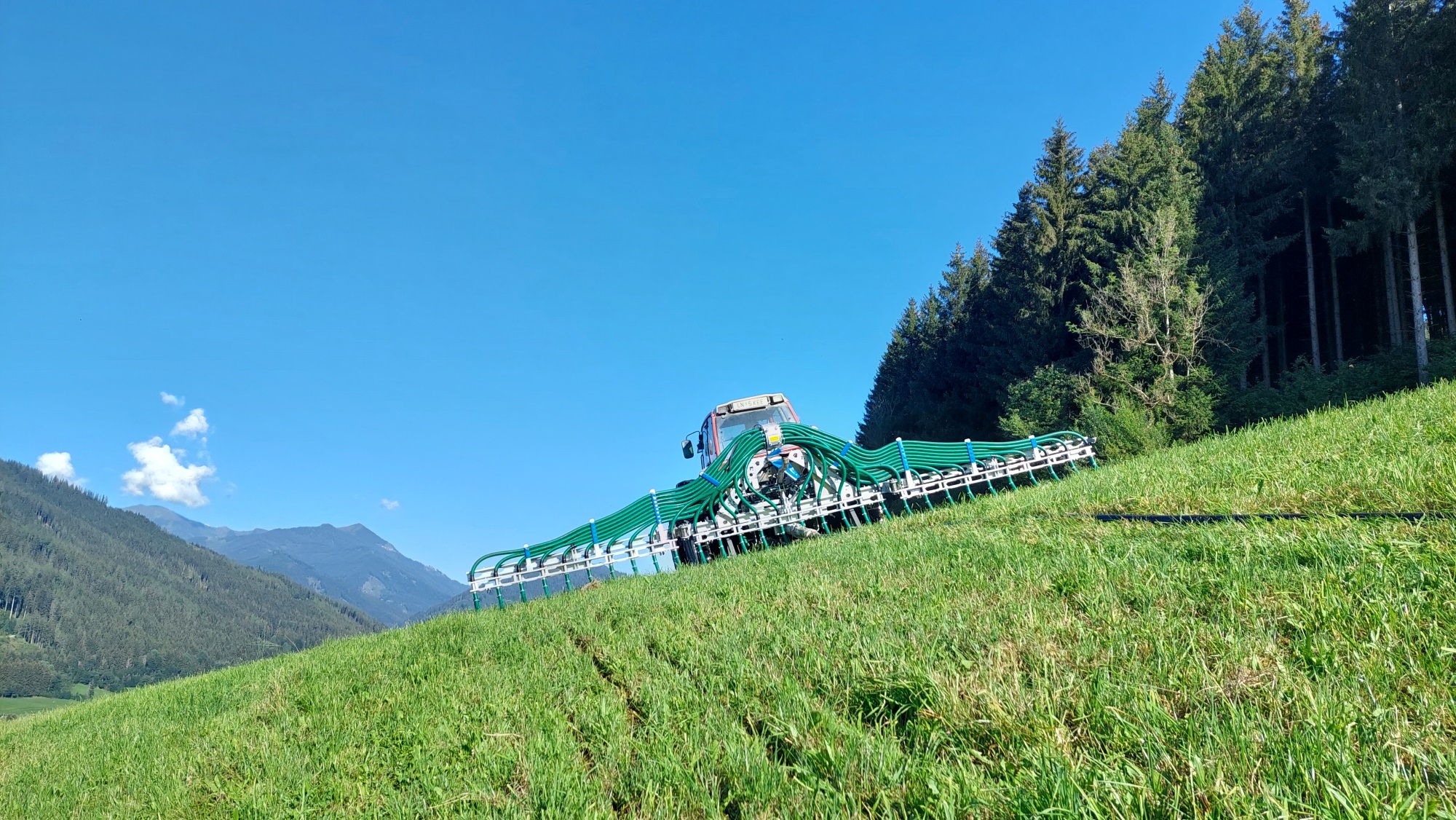Manures are valuable complex fertilizers that fulfill an important economic and ecological function in sustainable, animal and land-based agriculture. In addition, agriculture has always seen itself as a circular economy, which means that the nutrients and humus-forming components in the manure are returned to the plants with as little loss as possible. in energy prices in recent years has increased the pressure to increase efficiency not only in terms of production technology, but also in terms of reducing nutrient losses.
Against this background, it is important to minimize all loss paths, especially in connection with nitrogen.
That starts with
- needs-based feeding
- and ranges from animal-friendly, climate-friendly, low-emission stable construction
- through storage to treatment and
- Spreading the fertilizer as evenly and with as little loss as possible.
The application of liquid manure close to the ground plays a central role . Further measures to reduce emissions, such as using pasture, diluting manure with water (summer manure) and taking the weather into account (cool and damp), are well suited to supporting existing emission reduction measures.
What needs to be taken into account in the “commercial fertilizer management of the future” from the stable to the application – What’s new! What's up! What doesn't work! - is discussed in the Agrar-Environmental Science podcast by Andreas Steinwidder and Alfred Pöllinger-Zierler.
If you are enthusiastic about these topics or would like to find out more about them, we invite you to listen to our podcast:
If you are interested in the topic discussed by Mr. Priv. Doz. Dr. Andreas Steinwidder and Mr. DI Alfred Pöllinger-Zierler are discussed, then please take a look at our podcast:









